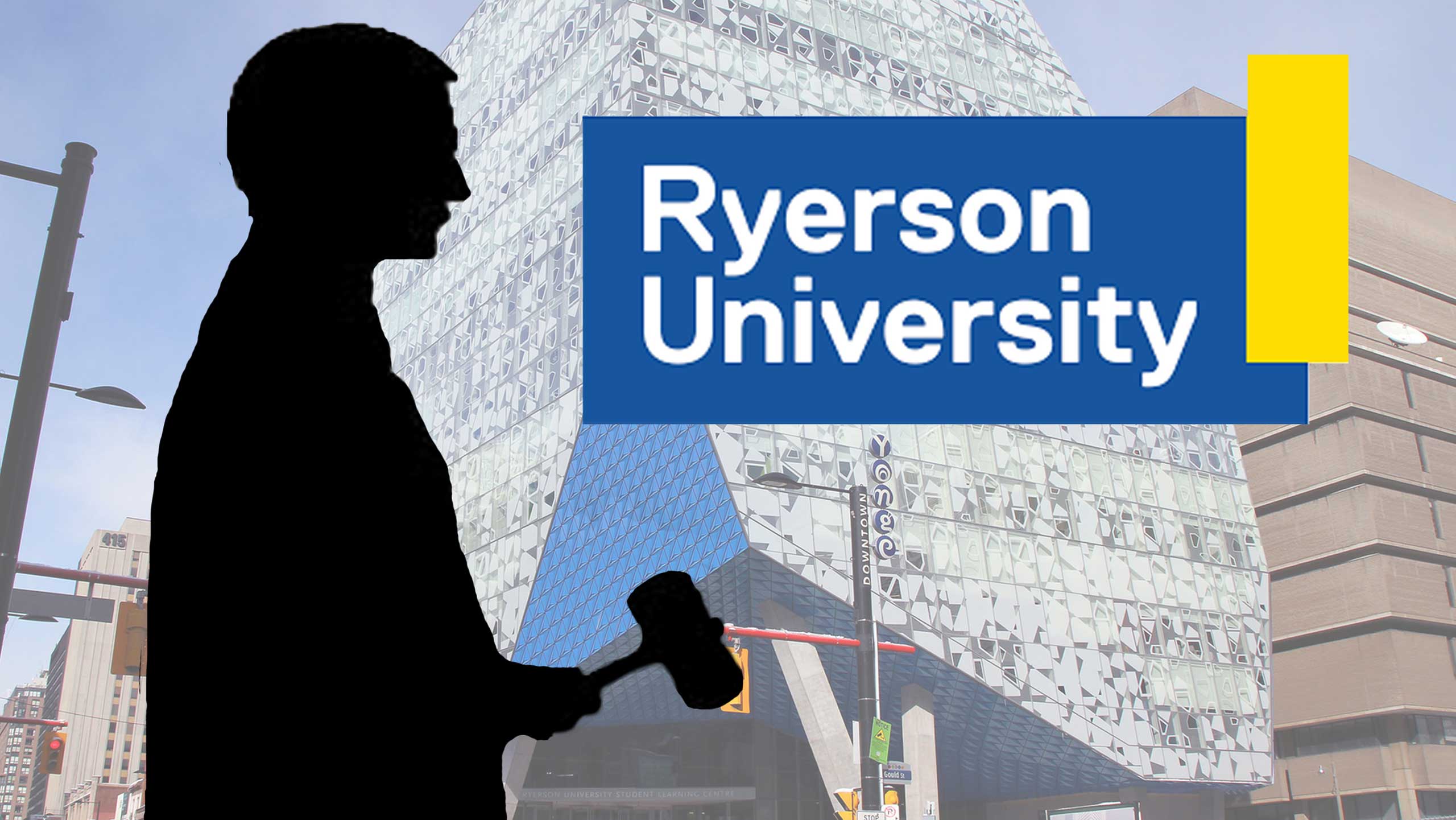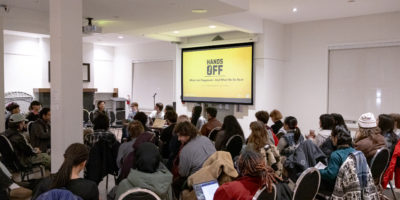By Sherina Harris
Ryerson University isn’t giving up on a law school, despite the Ontario government rejecting its program proposal last week.
The university’s law school planned to begin accepting applications in August 2019. It was slated to open in September 2020—after more than a decade of planning.
Last week, the provincial government said they wouldn’t approve the proposal. Merrilee Fullerton, Ontario’s minister of training, colleges and universities, told The Eye that approving the proposal for the law school “was not in the best interest of the people of Ontario.”
Fullerton cited a surplus of graduates seeking articling positions after law school, a likelihood of higher unemployment for lawyers and salaries increasing at a slower pace compared to other occupations.
Ryerson president Mohamed Lachemi said he was “very disappointed” about the decision.
After hearing about the decision, Lachemi sent the minister a letter requesting a meeting. He has yet to receive a response.
He said he wants to meet with the government to help them understand why the program should be approved.
“The government is always telling us, ‘This is the government for the people.’ They cannot leave people behind,” Lachemi said.
Ryerson’s law school would be different from others in that it would emphasize accessible legal services, entrepreneurship and equity and inclusion, according to the university’s website. Tuition was set to be $20,000 per year—at least $8,000 cheaper than other GTA law schools. The school would accept 150 students.
“We’re not giving up on the philosophy behind the law school. However, we have to continue to work really hard to convince the government this is something good for students,” Lachemi said.
Students enrolled in Ryerson’s law school would take mandatory business and technology courses, said Omar Ha-Redeye, a lawyer at Fleet Street Law and an adjunct law professor at Ryerson.
“Ryerson’s law school is intended to train lawyers who could transform the industry,” Ha-Redeye said. “They would be net job creators because they’ll be creating companies and law firms and hiring the graduates from the other law schools.”
With all the province’s talk about the economy, Lachemi also said it’s important they see the university as a mechanism to generate jobs.
Ryerson is “a generator of talent,” Lachemi said. “If they understand that, I think they will see that this is important for them, to support the university sector.”
Ryerson was waiting for the ministry to release a timeline for the law school program’s approval, prior to last week’s announcement. The university’s senate and board previously approved the program.
The school has also been approved by three accreditation bodies: the Quality Assurance Council, the Federation of Law Societies of Canada and the Law Society of Ontario (LSO). The LSO passed a resolution to licence Ryerson graduates.
Ha-Redeye said the vision of law taught in existing Canadian law schools is outdated.
Ryerson’s plans for a law school have already impacted the legal landscape. Other law schools have considered implementing business and technology into their curriculums, he said.
“It’s easier to build a small school from scratch that’s going to focus on the contemporary and future issues that the legal profession is facing than it is to try to revamp an existing law school,” he said.
Ryerson currently has a legal incubator called the Legal Innovation Zone—the first of its kind, according to an email addressing the government’s decision sent to Ryerson students by administration last week.
The university also has a Law Practice Program that has a 100 per cent placement rate, according to the email.
“We should be celebrating the fact that Ryerson is moving ahead with this law school because we are going to change the face of the legal industry,” Ha-Redeye said.
This isn’t the first time the Progressive Conservative government has derailed Ryerson’s plans. Back in October, the province pulled funding for Ryerson’s campus in Brampton. Following that announcement, Lachemi said he wasn’t giving up on Brampton yet either.













Unemployed Lawyer
There is no need for any more law schools in Ontario. The market can’t bear it. No matter how “enlightened” this university thinks their curriculum is, there are no jobs for graduates. I know that Ryerson wants to pump out unemployed grads to feed into their LPP program but cant we listen to some common sense on this topic? Do we want to turn into the US and have every post secondary school have a law school pump out indebted and unemployed graduates?
kwok pun chan
new location?
http://torontosocietyofarchitects.ca/event/7th-annual-aco-nextgen-design-charrette/
kwok pun chan
IPC training @ community legal clinic : win/win
https://www.thelawyersdaily.ca/business/articles/11880